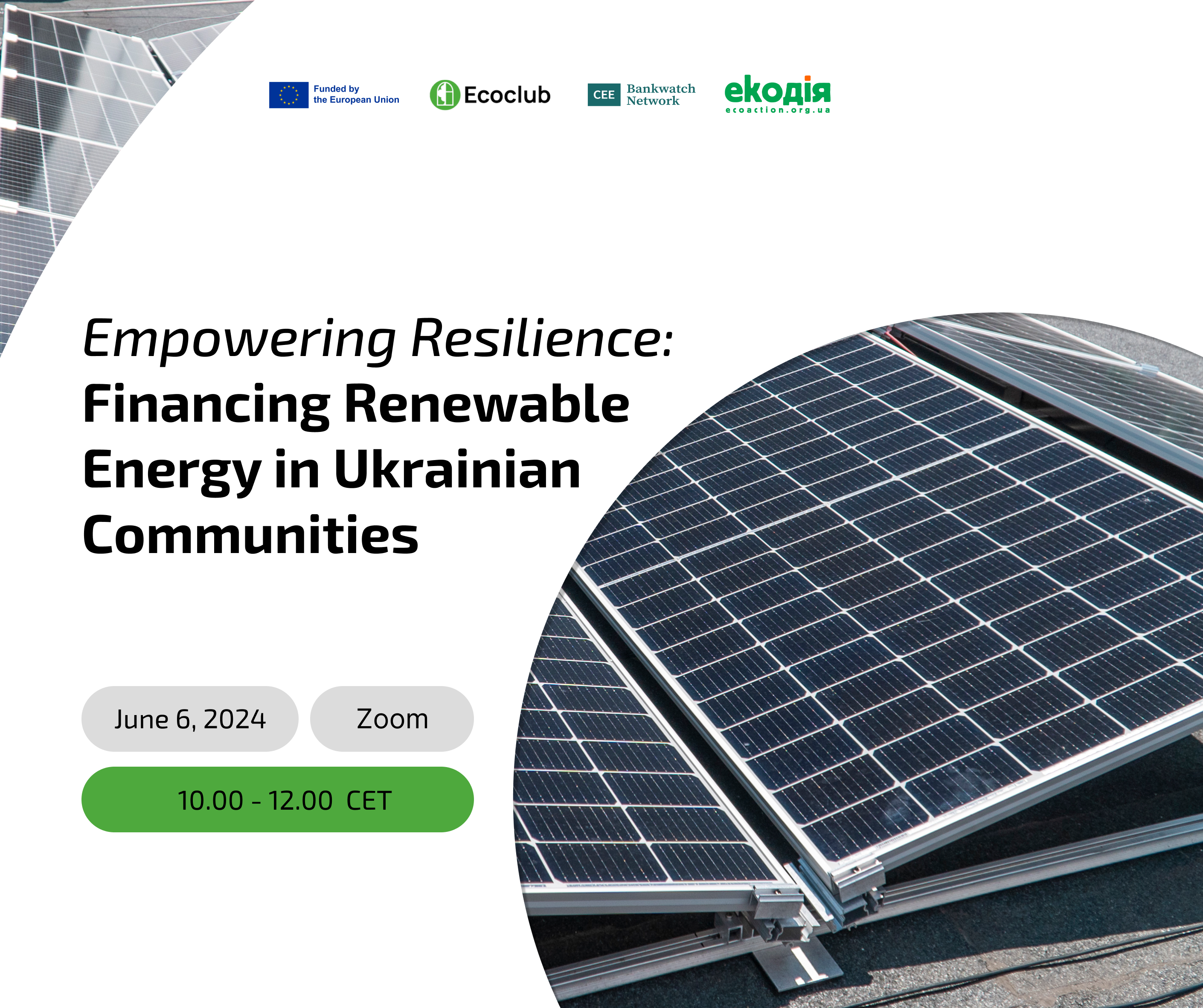When? June, 6 | 10.00 – 12.00 CET.
Where? Online, the link to the webinar will be sent to all registered.
Registration: https://forms.office.com/e/NZYbcTP3b6
The Russian invasion to Ukraine has severely damaged the country’s energy infrastructure, leaving municipalities struggling to restore essential services like electricity, water, and heat. Ensuring energy security is crucial, and increasing renewable energy installations at municipal sites is a promising solution. There is also a need to create financial instruments to support these projects.
Join the webinar, during which we:
- present the results of the study “Financing Renewable Energy Projects in Ukrainian Municipalities” (ecoclubrivne.org/en/finnancing_res_study/),
- share the experiences of communities in implementing reconstruction projects, particularly in the field of renewable energy: technical and economic figures of projects, experience in installing and operating solar power plants during power outages,
- discuss the challenges and opportunities faced by communities and highlight the current state of resource availability for reconstruction,
- present a vision of how renewable energy projects should be financed and provide a list of existing ideas for renewable energy projects (RES).
Event language: English (with translation in Ukrainian).
Speakers:
- Iryna Stavchuk, Project Manager, Ukraine Programme, European Climate Foundation
- Dr. Cyriac Massué, Councellor for economic affairs and energy of the German Embassy in Ukraine, German Embassy to Ukraine
- Serhiy Sykhomlyn, Mayor of Zhytomyr municipality, Ukraine
- Olena Baida, expert of NGO Ecoclub
- Elise Vigier, Responsible for project R2U, GIZ: Insights from the R2U project and future initiatives
- Andriy Martynyuk, Executive Director of NGO Ecoclub
- Maria Lukyanova, Green Investment Specialist, UA National coordinator CEE Bankwatch Network, Ecoaction
- Artem Shevalev, Alternate Board Director, EBRD
- Ihor Knyazev, Principal Banker, EBRD
The European Union supports the event within the framework of the project “Closing the Loop: A Just Energy Transition Designed by Cities and Regions.” The event’s content is the NGO Ecoclub’s responsibility and does not necessarily reflect the position of the donors.












